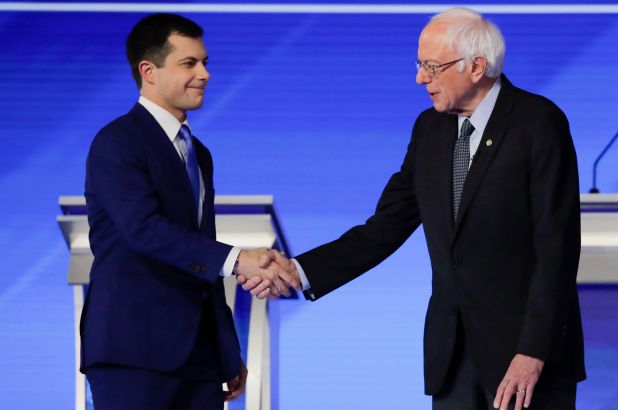Sanders and Buttigieg Lead Democratic Primary
As the calendar flipped from January to February, the realities of the Democratic Presidential Primary race settled into place. Despite only two states having held elections to this point, the impact of these early elections has been felt deeply.
While some candidates have picked up crucial momentum, others have seen their hopes for the White House dashed. On February 3, Iowans gathered across the state in what can be described as nothing short of a disastrous caucus day.
Voters hoping to clearly express their preferences in the crowded Democratic primary were drowned out by technical errors in reporting, tied mostly to the newly implemented app designed by Shadow, a company backed by Democratic non-profit group Acronym.
Likewise, campaigns and candidates looking for an early push into primary season were given very little to hold on to. It took several days for the Iowa Democratic Party to begin releasing official results.
By the time all the precincts had reported, the candidates had shifted their focus fully to New Hampshire, the nation’s first primary.
The controversy surrounding who won the Iowa caucus has still yet to pass. On the night of the vote, with zero percent of precincts officially reported, Former South Bend, IN Mayor Pete Buttigieg declared himself the winner, saying that Iowans had “shocked the nation.”
Vermont Senator Bernie Sanders pushed back on Mayor Pete’s claim, citing his lead in the popular vote. “When 6,000 more people come out for you in an election than your nearest opponent,” he told reporters, “we here in northern New England call that a victory.”
Currently, Buttigieg holds a slight margin in State Delegate Electors over Sanders, but the ongoing recanvass of caucus sites has muddied the waters even more, as the mayor’s lead continues to dwindle.
A week later, the New Hampshire primary provided much less drama and many more answers. Prefaced by a heated debate between the candidates, Sanders and Buttigieg once again led the pack, this time with Sanders declaring a more decisive victory.
The two candidates seem poised to battle at the top of the ballot for the foreseeable future. Other candidates have been making their plea to voters as well, with some succeeding more than others.
Senators Elizabeth Warren (D-MA) and Amy Klobuchar(D-MN) have taken third place in Iowa and New Hampshire, respectively, building a decent floor of delegates to work from going forward. Neither campaign seems to be nearing an end, though both will need to pick up a strong victory or two to prove their staying power to voters.
On the other end of the spectrum are the candidates who have decided they no longer had a place in the nominating race.
After the New Hampshire primary was called, Senator Michael Bennet (D-CO), former MA Governor Deval Patrick, and entrepreneur Andrew Yang all dropped out of the race, citing poor election results and insufficient funding. The once burgeoning primary field has now whittled down to just eight candidates.
Perhaps the most intriguing of the results so far has been the apparent shortcomings of Joe Biden. The former Vice President was once a clear front runner in the race, but finishing fourth in Iowa and fifth in New Hampshire has cast some doubts among voters and donors.
The campaign seems to be focusing its energy and resources on the South Carolina primary, as Biden left New Hampshire before the end of primary night for the Palmetto State. Another weak performance here could mean disaster for the campaign.
Before the South Carolina primary, however, Democratic voters in Nevada will gather for the second caucus of the election cycle. The state party has promised to operate more efficiently than Iowa, saying they will not rely on the app that led to the confusion in early February. On Saturday, February 22.
While Nevada will feature mostly the same ballot as the previous two races, the preceding debate saw a new candidate on stage – New York City Mayor Michael Bloomberg. He had previously been ineligible for debates, due to running his campaign solely on his own private wealth.
One of the criteria for the first eight debates was a donor threshold aimed at rewarding grassroots campaign movements. At the end of January, the DNC removed this requirement, allowing Bloomberg to debut on the debate stage this past Wednesday night.
While the former Mayor won’t be on the ballot in Nevada, his goal of a strong Super Tuesday still stands in tact.
As the Democratic Primary continues to roll on, it’s time for the front running candidates to prove themselves as an electable option, while those trailing the pack need to either step up or step out of the race.
Super Tuesday looms on the horizon, when 16 primary races will occur, which should provide some clarity and cohesion on the Democratic side of the election.



